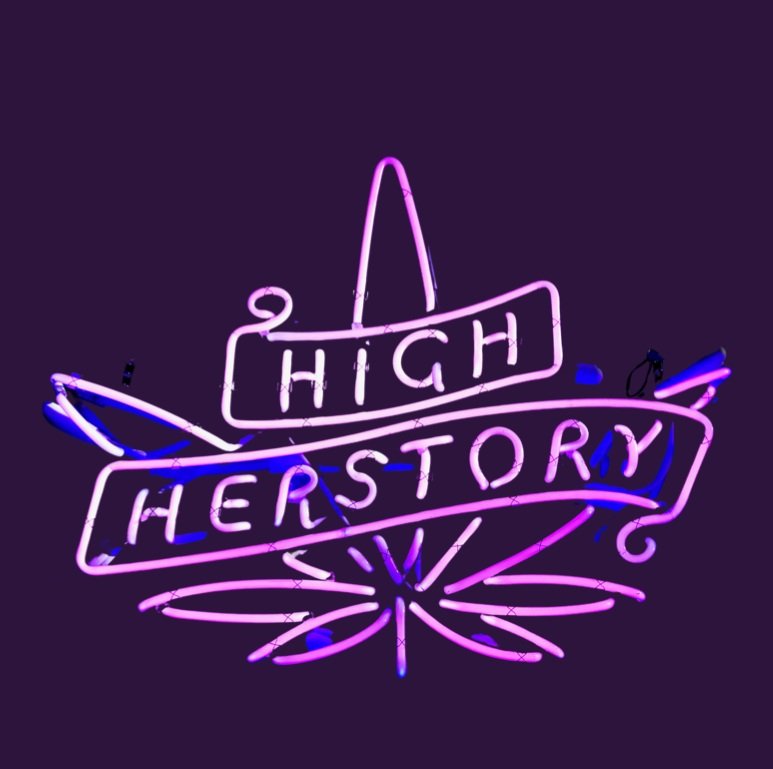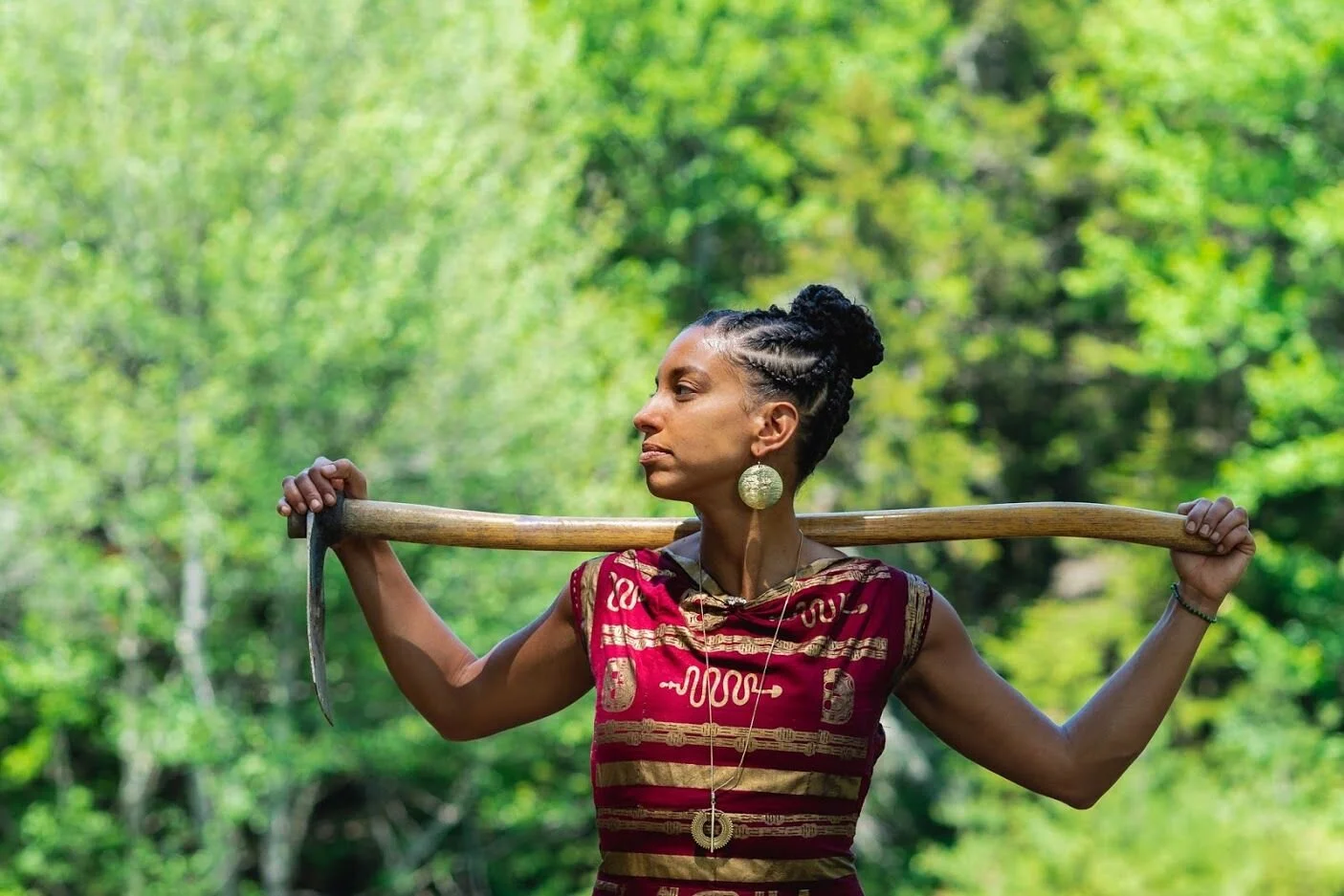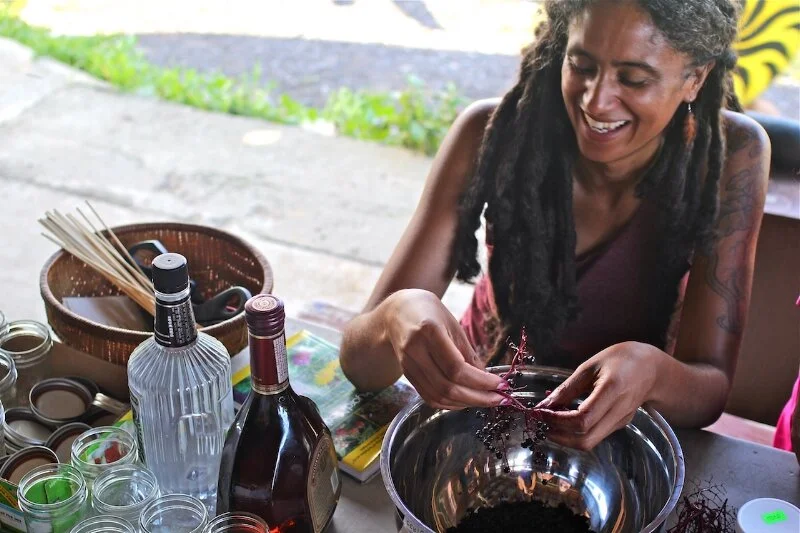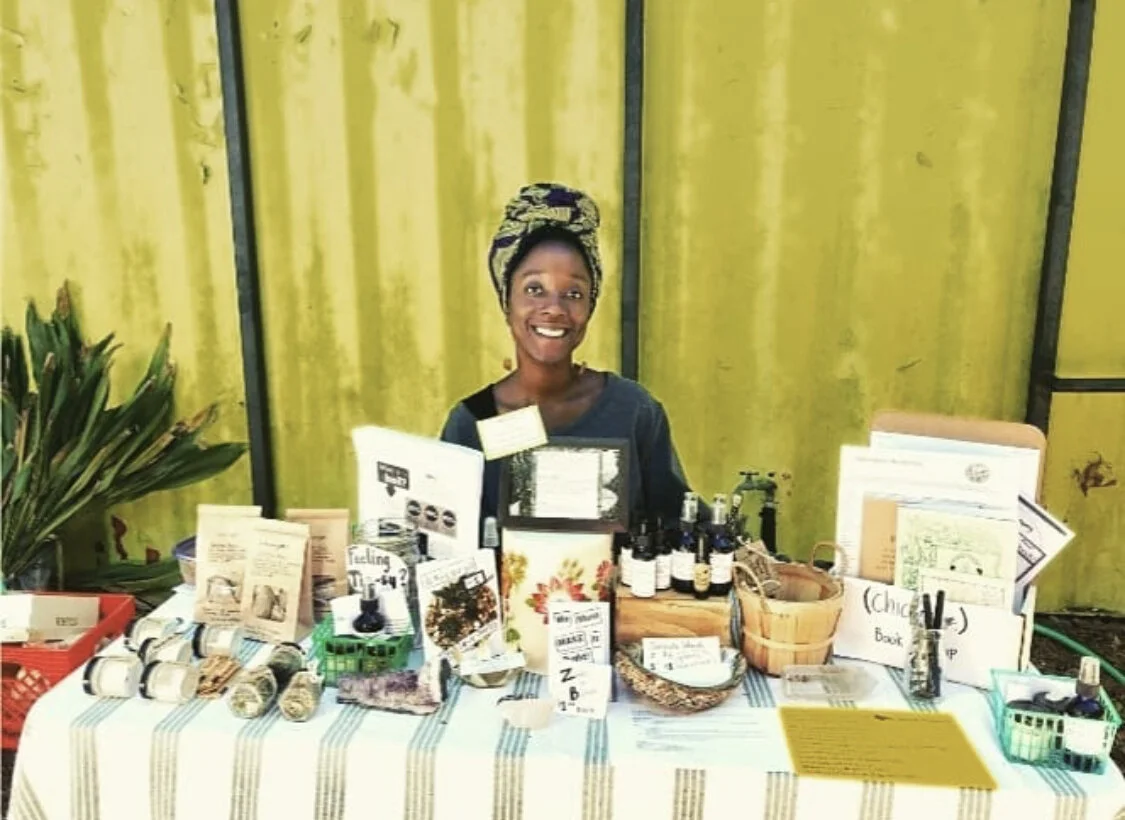Black Women Herbalists: 7 Women Making History in Herbalism
Herbalism is a field with a long and storied history. In the U.S., herbalism has been practiced by many groups, including Native Americans, enslaved Africans, and early European immigrants, who brought their love of plant-centered medicine with them. Black women herbalists have always been a part of herbalism, but they are in the spotlight now more than ever as herbalism has gained popularity in the U.S.
Below are black women herbalists to follow on social media for a look inside both ancient and modern techniques to create a personalized, balanced regimen to maintain health.
Alexis Nikole Nelson (she/her) @blackforager
“Foraging for wild food was an integral part of the black experience, whether free or enslaved, for our first 250 years on this land” -Alexis Nelson
Alexis is from Columbus Ohio and says that for as long as she can remember she was eating foraged food. Foraging can feel very intimidating and does take practice, experience, and great teachers like Alexis to build your confidence. Alexis has been using Social Media to educate and connect to her regional community of herbalists and foragers for awhile now, but last year when the pandemic hit, her following began to grow and grow! When you watch her educational & funny videos it’s easy to see why!
2. Sade Musa (she/her) @rootsofresistance
A folk herbalist, wellness educator, and activist, Sade Musa founded Roots of Resistance, a project aiming to reconnect people with their ancestral healing practices, and address health injustices impacting marginalized communities. A powerful storyteller, Sade uses her platform to help reframe for us all how subtle and overt racism exists within herbalism texts and resources. Like so many other topics, appropriation of black herbal wisdom is rampant throughout Herbalism. I think this quote from her sums up the root of her work beautifully.
“Bodily autonomy is really key for anti-colonialism resistance, but particularly Black resistance. Whether we’re talking about emancipation from slavery or incarceration or medical apartheid, we’re talking about bodily autonomy. When we give people the skills to heal themselves as much as possible and connect that to how our ancestors would heal themselves as an act of resistance and self-determination, they gain the confidence to push back against the running narrative.” – Sade Musa
3. Jamesa Hawthorne (they/them) @jam_haw
Founder of Jam Haw Herbals, Jamesa Hawthorn is a black, femme, queer Herbalist who speaks to the importance of the representation of marginalized people in the wellness community. On their Website , Jamesa offers a beautiful range of blended tinctures to help support your immunity as well as your emotional and mental wellness.
Raised in the Pacific Northwest (the unceded lands of the Clackamas, Cowlitz and Confederated Tribes of Grand Ronde), Jamesa began their love affair with nature as a child & their herbal medicine studies nearly a decade ago. They practice as a community & creative herbalist, participating in herbal mutual aid, markets, events, & teaching workshops.
Studying herbalism in different parts of the country has informed their perspective on bioregional & seasonal herbalism. While they appreciate & weave clinical & scientific ways of knowing into their craft, New Orleans (traditionally known as Bulbancha ) nurtures the bulk of their herbal studies & community building, bringing them closer to ancestral & folk practices.
Jamesa is a triple earth sign (taurus rising, taurus sun, & capricorn moon) who cultivates a Venusian intimacy with the earth element whether in their garden or in their potion studio. Outside (& inside) of being an herbalist, they are also an artist of life, dancer, writer, pleasure activist, & dog parent.
4. Karen M. Rose (she/her) @empresskarenmrose @sacredvibesapothocary
Karen Rose is trained both in eastern and western Herbal Medicine and owns three apothecaries around Brooklyn. As a child in her native home of Guyana, she was first inspired by the power of plant medicine. Karen experienced how African, Caribbean, and Latin American traditions deeply influence plant medicine as well as community healing. She has developed an incredible amount of educational materials and you can sign up for her apprenticeship and mentor programs through her website. Shop her powerful medicinal herbal blends as well.
5. Leah Penniman (Li*/Ya/She/He) @LeahPenniman @soulfirefarms
Leah is a food sovereignty activist and soil steward. She founded Soul Fire Farms in 2010 with the intention to “reclaim our inherent right to belong to the earth and have agency in the food system as Black and Brown people.” We cannot recommend her book Farming While Black enough! It is her love song to the earth as well as her people. The Food Sovereignty Programs she has created reach over 10,000 people a year. Head over to the Soul Fire Farms website, to learn about Leah and her team’s work in the areas of farmer training for Black and Brown growers, reparations and land return initiatives for northeast farmers, food justice workshops for urban youth, home gardens for city-dwellers living under food apartheid, doorstep harvest delivery for food insecure households, and systems and policy education for public decision-makers.
6. Amanda David (she/her) @rootworkherbals
Amanda David is a community herbalist and founder of Root Work Herbals. The various projects they take on are all centered around building mutually beneficial relationships between people, plants, and the planet. Under the guidance of Amanda, The Rootwork Herbals community has grown to offer a herbal product line available at Bramble, herbal health consultations, and a BIPOC free clinic. She focuses her educational offerings at the People’s Medicine School and Woke Without the Work, and a BIPOC community garden. With deep love and a sense of play Amanda works to ensure that BIPOC folks have equal access to opportunities to reclaim healing through herbalism.
7. Nikki Minor (she/they) @chicoryzine
Nikki Minor is an Herbalist and founder of Chicory Botanicals, a self-published zine and line of small-batch herbal goods handmade in New Orleans, Louisiana.
Nikki’s Zine works as a mini primer, with simple affordable recipes, it makes herbalism accessible throughout marginalized communities. Their passion lies in demystifying Herbalism and using plants as tools for liberation.
We’ve also made a list of herb supply shops to get your started on your herbalism journey. We may receive a small commission from some of the following links, but don’t worry we only recommend products and places we truly love. If you’d like more herbalist content send us an email at hello@highherstory.com and tell us what you’d us to cover next!
Herbalist Shops We Love:
Mountain Rose Herbs
At Mountain Rose Herbs, they work from the fundamental belief that it is an honor and responsibility to strive for excellence as human beings and as a company: to live by ethical principles and to set ourselves always on a path of growth and learning in our ever-changing world. They also believe in the profoundly healing beauty of nature and the natural gifts of the botanical world.
Starwest Botanicals
Starwest Botanicals started as a small retail herb shop in 1975 in Sacramento, California. Today, Starwest is one of the largest suppliers of organic herbs in the United States, with over 150,000 sq. ft. of modern warehouse and production space and over one million pounds of herbs and spices in stock. They have many loyal customers who have been returning to Starwest for their botanical needs for decades.
Nine Stars Botanicals
Nine Stars offers healing solutions and cultivations for people seeking new alignments and balance in themselves. Their products are informed by the wisdom of Chinese herbal medicine and philosophy. The solutions are poised to work for your health and wellbeing-inside and out.







